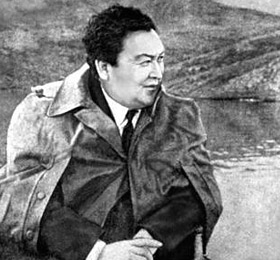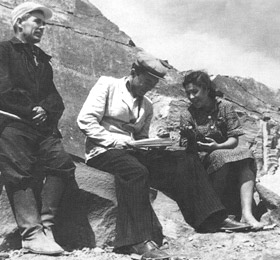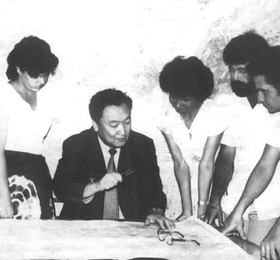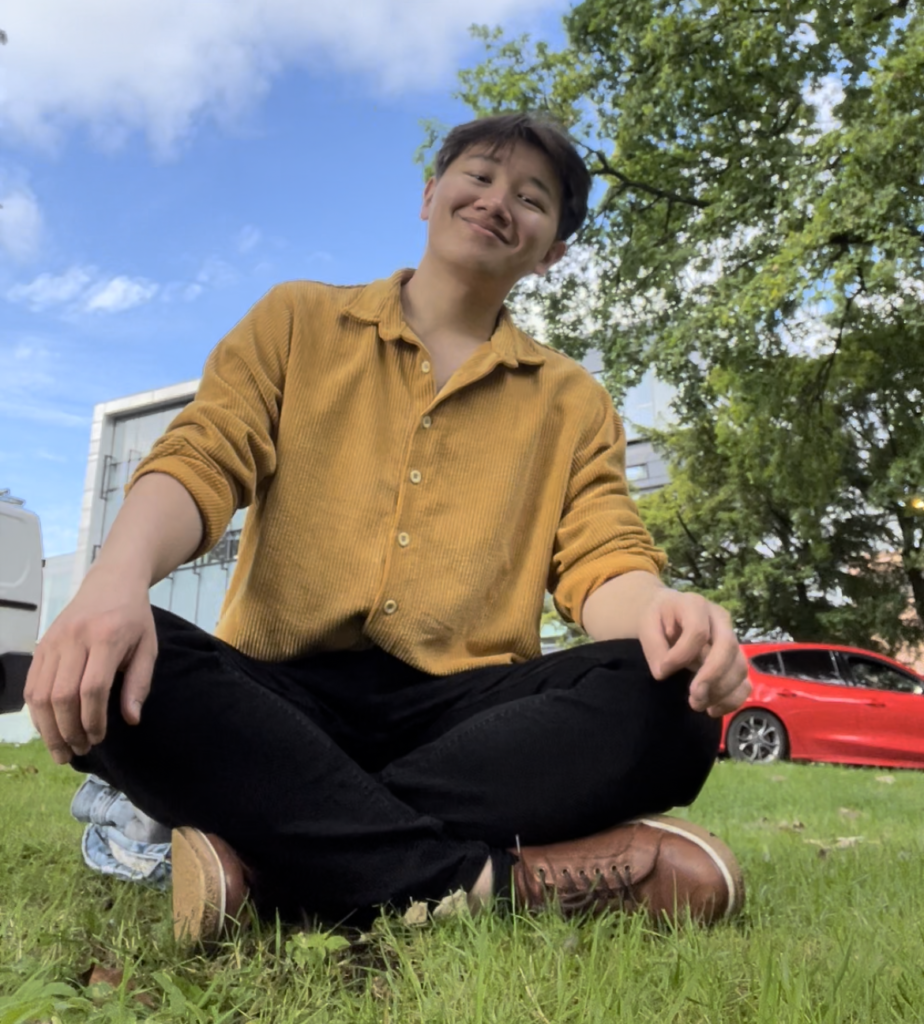Bexultan Kazybay
Specialization: Molecular Medicine. Internship: The University of Glasgow, UK.
The winner of the 2022 Yessenov Foundation research internship competition comes from Turkestan region. He is 26 years old. Bexultan got a master of science degree at the Nazarbayev University School of Medicine. Currently he is a doctoral student at the Utrecht University. In the summer 2023, he went for an internship at the Wolfson Wohl Cancer Research Center at the University of Glasgow, Scotland. In this interview, Bexultan talks about his experience.
Why did you choose this speciality? What does it focus on?
The decision to choose a speciality in the field of molecular oncology could be simply explained. I am interested in studying cancer cells. These cells are also termed immortal, because they can reproduce infinitely and survive. I believe that this research path will enable me to contribute to the fight against one of the most serious diseases of our time. These professional specialists work in leading scientific and medical institutions including universities, research institutions and pharmaceutical companies worldwide. They develop new methods of diagnosing and treating cancer, and study molecular mechanisms of tumor development and metastasis.
Was the internship competition an interesting experience?
I really liked the competition’s unusual format. Having learned the rules, I immersed myself in the process. Every stage was an exciting challenge. Solving logic problems without a clear answer required professional skills as well as the ability to communicate effectively and show self-confidence. In my opinion, I have been chosen as the winner because of these personal qualities combined with my research experience.
Bexultan, what was the most challenging during the competition and on internship?
A group interview during the competition was rather difficult. At that time, I didn’t really understand how to prepare, how to behave during the interview, how to answer questions, etc. But, as it turned out, the participants were expected to be themselves and do their best. On internship it was rather challenging for me to quickly acquire new knowledge and skills, and to efficiently manage time in order to fulfill assignments in the laboratory. But I managed to overcome the barriers. Motivation, perseverance, support from colleagues and tutors helped me a lot. I would like to give those students who want to apply for this competition a piece of advice. Both in the application and during the interview, make sure to show a keen interest in your research. You will be chosen as the winner if you are highly motivated, aside your other advantages. I would also like to recommend the winners to make their own list of 50 laboratories and write to them as soon as possible. For example, immediately after receiving an invitation to an interview or as soon as you learn about winning the Yessenov Foundation competition.
What were you doing during your internship?
For my internship I chose the Institute of Cancer Sciences at the Wolfson Wohl Cancer Research Center. It was an intensive and productive course. Under the tutelage of Dr. Chris Halsey I worked on a large research project related to the study on adaptation of acute lymphoblastic leukemia to the central nervous system. I acquired skills in working with cancer and somatic cells, and mastered laboratory techniques. For example, I isolated cancer cells from mice, prepared them for further analysis, and took part in experiments on testing drugs on them. Moreover, I managed to conduct my own research study on whether leukemia cells can receive nutrients from somatic cells, and also analyzed lipid metabolism using a mass spectrometer.
What have you learned in 3 months?
First, I acquired many valuable skills and knowledge and learned how to effectively design experiments – this skill helps me in my research work now. Second, I mastered new research methods that can be applied in science projects. Finally, I gained confidence in my own abilities and discovered my potential in scientific research activities. Now I have a clear understanding of how to transfer from academic sphere to industrial companies – for instance, pharmaceutical or biotechnology ones.
Bexultan, what else did you find interesting during the internship, besides science?
I managed to travel to several cities in the UK – visited Glasgow, Edinburgh and London. It was an opportunity to delve into the atmosphere of different cultures and meet new friends, perhaps future colleagues. I enjoyed visiting many local attractions and tried a wide variety of world cuisines. The Wolfson Wohl Cancer Research Center is located outside the city and surrounded by forests. This inspired me to take up a new hobby – hiking – to enjoy nature and physical activity in my spare time.
What do you do now and what are your plans for the next couple of years?
Last year I enrolled in the Maxima Butterfly PhD program at Utrecht University in the Netherlands, where I currently work. Here, doctoral students are considered full-fledged researchers. It gives a unique opportunity to work in the largest pediatric oncology center in Europe – Prinses Maxima Centrum. In the next four years, I would like to complete my dissertation and get a PhD degree. Then I intend to work at a pharmaceutical company, where I hope to be involved in developing new drugs and methods of treating cancer.
How do you spend your free time?
I like jogging and make new routes listening to music. It helps distract from daily routine and discover new interesting places in the city. Once while running through the streets I eventually found a nice coffee shop. It has become my favourite and I often enjoy time with my friends there. I like to travel. Last year I visited Brussels, Strasbourg and Paris. In the future I hope to travel to the countries of southern Europe.
17.04.24, Без рубрики, Stories
Seen by: 233






